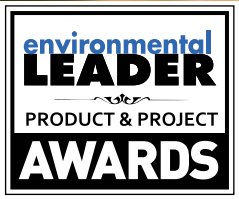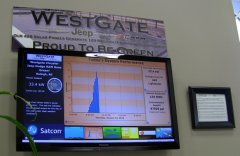 General Motors, Schneider Electric, and Waste Management were honored for sustainability initiatives in the second annual Environmental Leader Product & Project Awards. A panel of distinguished judges scored entrants in the competition based on excellence in energy and sustainability management. Click here to download the report.
General Motors, Schneider Electric, and Waste Management were honored for sustainability initiatives in the second annual Environmental Leader Product & Project Awards. A panel of distinguished judges scored entrants in the competition based on excellence in energy and sustainability management. Click here to download the report.
General Motors was honored for “Driving a Global Movement for Zero Waste,” through its global manufacturing sustainability campaign. It’s based on reducing landfill waste to zero, and from turning those scraps and waste materials into a revenue stream.
In 2012, GM generated an estimated $1 billion in reuse and recycling revenue from its byproducts; the automaker eliminated 11 million metric tons of CO2-equivalent emissions. GM has also become known for its land-fill free production facilities with 108 of them now in place. The goal is to bring that number up to 125 by 2020.
To accomplish its goals, GM uses a variety of methods including data collection and monitoring systems, employee and external engagement initiatives, and creative reuse and recycling. Results are reported monthly by GM plants, offering a company standard to benchmark against. GM has been sharing its strategies with members of its value chain and to the manufacturing industry.
Schneider Electric, which plays a significant role in the electric vehicle charging infrastructure, and the Sustainable Apparel Coalition (SAC) were recognized for development of “Higg Index 2.0.” SAC’s index was first introduced 18 months ago; this new version brings in an online platform developed by Schneider Electric; it’s added the ability to share users’ sustainability data, increase accuracy, and add measurability for materials and processes. This brings greater transparency and accountability through the apparel industry’s supply chain. The companies say that Higg Index 2.0 adds to the 1.0 version by including new measurement data to help assess chemical and social impacts of products.
Waste collection giant Waste Management was honored for what it brought to the Phoenix Open golf tournament. The PGA’s most highly attended golf tournament was turned into its most sustainable one. The company aimed to make the tournament a zero waste event by diverting all of its waste to recycling, composting or waste-to-energy. Along with using the renewable energy sources of wind, solar, and biomass, greywater to save water, 63% of the transportation vehicles used during the golf tournament were run on alternative fuels.
Waste Management has more than 3,000 heavy-duty natural gas trucks in North American cities today; the company plans to ultimately convert its entire fleet of 18,000 collection vehicles over to natural gas and has more than 50 natural gas fueling stations in place.


